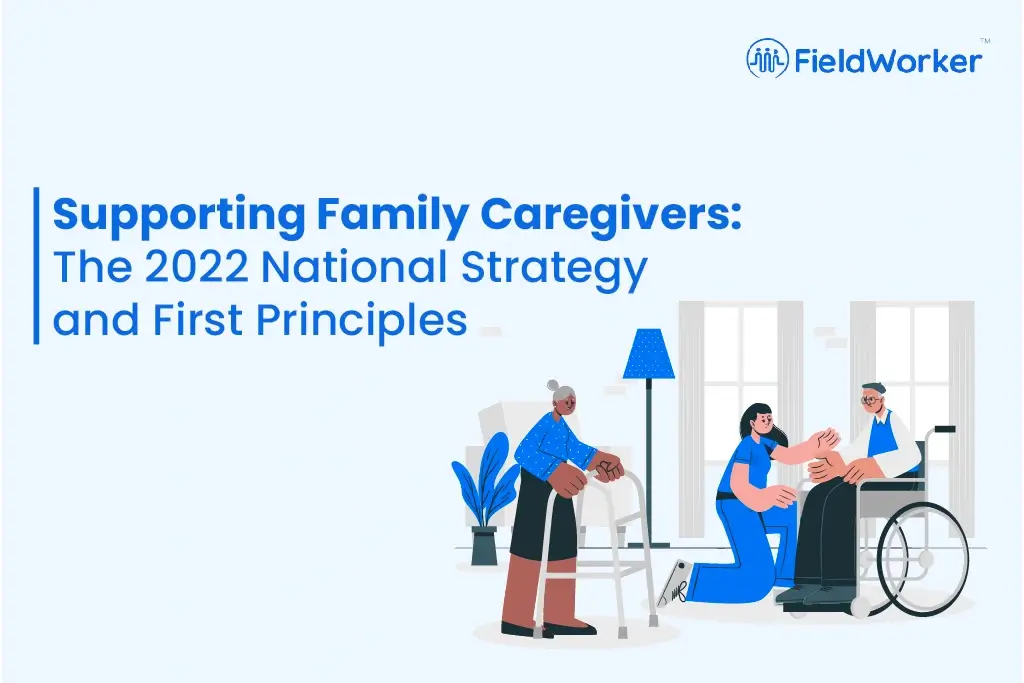Being a family caregiver is a role many of us are called upon to perform at some moment throughout our lives. When we care for elderly parents, family members with disabilities or even grandchildren, the efforts of family caregivers can be vital. In recognition of the importance of their contribution to the care of family members, in 2022, the National Strategy to Support Family Caregivers was created to offer comprehensive assistance to caregivers from all backgrounds and ages. In this blog, we’ll examine the Strategy’s main components and the primary concepts guiding its implementation.
What is the Scope of Family Caregiving:
Family caregivers are vital in the modern world and assist various people. They aid older adults and those who have impairments in their everyday lives and navigate the complex healthcare system and are responsible for the health of the children they care for. Family caregivers also aid those who suffer from chronic health issues and those in assisted or nursing homes and living facilities. Their selflessness and devotion constitute the core of the long-term care system in our country.
The Costs and Impact of Caregiving:
While it can be rewarding, it can also come at personal costs to caregivers. The physical, financial, and emotional burdens they carry are challenging to measure. Caregivers are more likely to suffer from depression as well as a higher mortality rate than those who are not caregivers. The financial cost is significant as caregivers lose wages, and employers suffer productivity loss due to the caregiving duties of employees. Additionally, institution-based care becomes the only option when caregivers cannot support their family members. This leads to higher costs for healthcare systems.
The 2022 National Strategy to Support Family Caregivers is designed to recognize, support, include, and encourage all family caregivers. It was developed through the RAISE Act Family Caregiving Advisory Council and the Advisory Council to Support Grandparents Raising Grandchildren. This plan integrates federal, state, local, tribal and stakeholder responses. It promotes collaboration, enhances existing support initiatives, and focuses on equity for the most vulnerable populations, and encourages the concept of family-centred and person-centred care.
The Strategy’s components comprise a comprehensive overview of the Strategy, with interconnected factors referred to as the First Principles: Cross-Cutting Considerations for Family Caregiver Support, Federal Actions and Actions for States, Communities, and Others. The federal actions comprise more than 350 commitments from 15 federal agencies for implementing the Strategy in existing programs. In addition, more than 150 actions are recommended for states or communities and other stakeholders to help caregivers. The plan emphasizes collaboration and coordination between the various sectors and organizations supporting family caregivers.
The Strategy emphasizes four essential cross-cutting issues which should guide all efforts to assist family caregivers.
- Approaches that are family-oriented and person-centred, caregivers and their beloved relatives should remain the main focus of all care interactions, with their needs driving support systems, not the other way around.
- Trauma and its effect: It is essential to recognize that caregivers and the care recipients might have been through trauma; it is crucial to understand and minimize the impact of trauma on the caregiver’s journey.
- Inclusion, diversity, equity, and accessibility: Recognizing that the impacts and challenges of caring giving aren’t equally spread, efforts must be taken to ensure fair access to assistance, particularly for marginalized and underserved communities.
- Promoting direct care workers’ status In recognition of the crucial function that direct caregivers play, they must be regarded as indispensable members of the family caregivers’ team.
Moving Forward:
The 2022 National Strategy to Support Family Caregivers is a significant step toward improving caregiving support for caregivers. However, it is an ever-changing document that requires constant input from caregivers, advisory councils, communities, and all other stakeholders. Regular updates will reflect the ever-changing landscape of caregiving and the need for enhancing collaboration.
